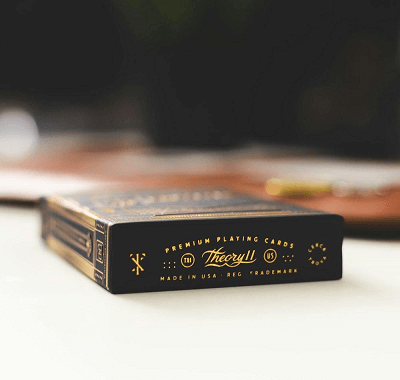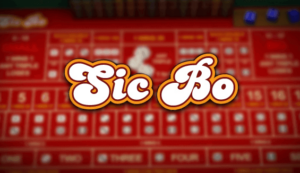Beginners Guide to Caribbean Stud Poker

Caribbean Stud Poker is a hugely popular casino card game that is said to have originated in the Caribbean in the 1980s.
Legend has it that an Aruba-based casino owner James Suttle was the brains behind the concept of Caribbean Stud, bringing an alternative poker table game to casino floors worldwide, including Australia.
In fact, Caribbean Stud Poker gained popularity Down Under as casinos began diversifying their table game offerings.
With the likes of Ultimate Texas Hold’em Poker and Pai Gow Poker also getting floor space in Australia’s biggest land-based casinos, Caribbean Stud helped to offer an alternative twist on the classic game of poker.
As with Ultimate Texas Hold’em and Pai Gow Poker, Caribbean Stud is a table game played heads-up against the dealer, instead of multiple opponents around the table.
Caribbean Stud is based loosely on classic 5-Card Stud Poker. If you’re intrigued and want to master this brilliant table game, read on as we run through what you need to know about Caribbean Stud Poker.
Rules of Caribbean Stud Poker
If you’re unsure how to play Caribbean Stud Poker, this section will light your fire. We run through the basic rules of play, including how to place your bets and the bet types available.
Caribbean Stud is as simple as most other forms of casino poker games. There is a basic pattern of play, as well as a limited amount of bet types, so it’s not a daunting game for newbies by any means.
It all starts with an initial bet on your hand, known as an ‘ante bet. This is the minimum you must wager to play your hand. Minimum and maximum antes will differ from casino to casino. It’s ultimately at the discretion of the operator.
Aside from the ante bet, some Caribbean Stud Poker tables will offer an optional side bet to tempt you. This is usually a progressive jackpot.
Typically, the standard bet size for the side bet is $1, but you can bet as much as you like. The strength of your eventual poker hand will be judged by the dealer. If it meets the criteria of the side bet, you’ll receive a payout based on the table displayed.
Dealing the Cards
Once all ante and optional side bets are placed, the dealer can see which players are active for the next round.
The dealer then gives five cards to each active player. The cards will be dealt face-down to maintain the mystery of the dealer’s five-card hand, although one of their five cards will be dealt face-up.
At this stage, you’re only allowed to look at your own five cards. You can’t discuss your hand with other players at the table. In the event this happens, your hand is voided. All antes and side bets are forfeited to the house.
Player Decision
At this stage of a round of Caribbean Stud Poker, you’ve got a big decision to make. You’ve viewed your cards and you’ve caught a glimpse of the dealer’s one face-up card.
You must now decide whether to fold or call.
- Fold
The fundamentals surrounding folding your hand are that you should fold if you don’t have at least a pair. It may also be prudent to play a high-card ace, especially with a king kicker, but anything worse than this should be thrown into the muck. The high-card ace with a king kicker is sufficient from a statistical perspective, so long as the dealer’s up-card is a queen or worse. - Call
If you have a pair or better in your initial five-card hand, you should proceed with a call bet. If you call, you must place a second bet that’s double the value of your initial ante. If your ante bet is $10, your call bet must be $20 to take your hand to the showdown.
Reveal and Showdown
Once all players have decided whether to fold or call, the dealer will then turn over their four remaining cards for a Caribbean Stud showdown.
The first hurdle for the dealer is determining whether they have a ‘qualifying hand’. If their hand doesn’t qualify, the round ends immediately with all remaining players receiving a 1:1 return on their ante bets, with their call bets refunded.
A qualifying dealer hand is one that either includes an ace or king or forms at least a pair or any higher-ranking poker hand. Essentially, if the dealer’s hand is worse than A-K-4-3-2, they cannot play their hand.
If it is a qualifier, the dealer will measure their hand against those of every player remaining in the round.
If a player’s five-card hand has a higher poker ranking than the dealer’s, they’ll receive a payout on their ante and call bets.
Naturally, if a player’s five-card hand has a lesser poker ranking than the dealer’s, they’ll surrender both their ante and call bets, and the next round of Caribbean Stud Poker betting begins.
Prior to the next round, the dealer will also check the hands of those who placed the optional progressive jackpot side bet.
To win a portion of the progressive jackpot, your hand will usually need to be a flush or better. The higher the hand ranking, the greater the percentage of the progressive jackpot you’ll win.
Payouts
Let’s take a look at how most Australian casinos will trigger a poker payout on winning hands of Caribbean Stud Poker:
| Hand | Caribbean Stud Poker Payout |
| Royal Flush | 100:1 |
| Straight Flush | 50:1 |
| Four-of-a-Kind | 20:1 |
| Full House | 7:1 |
| Flush | 5:1 |
| Straight | 4:1 |
| Three-of-a-Kind | 3:1 |
| Two Pair | 2:1 |
| Pair or High Card | 1:1 |
Now let’s take a look at how most Australian casinos will trigger a poker payout on successful progressive jackpot side bets in Caribbean Stud Poker:
| Hand | Caribbean Stud Poker Payout |
| Royal Flush | 100% of the total progressive jackpot |
| Straight Flush | 10% of the total progressive jackpot |
| Four-of-a-Kind | $500 |
| Full House | $100 |
| Flush | $50 |
Note: To win on the progressive jackpot side bet, you don’t even need to beat the dealer’s hand. Let’s say the dealer has four-of-a-kind jacks but you have a full house. In this scenario, your ante and call bet would lose but you’d win $100 on the side bet.
Final Words
Caribbean Stud Poker brings a slice of tropical flair to Aussie card tables, ensuring a unique twist on traditional poker action.
The game’s easy-to-learn rules make it perfect for beginners and seasoned players alike. Aussies can enjoy the laid-back vibe and the chance to win big – without the added pressure of competing directly against other players.
There’s no doubting that the progressive jackpot side bet is a fun feature, bringing an extra layer of anticipation.
As a starting point, we’d always recommend sticking to the basic strategy in Caribbean Stud Poker of folding with a hand ranked less than A-K. As with all forms of casino poker, it’s about playing smart and knowing when to hold ’em and when to fold ‘em!
Most of the leading online casinos in Australia will operate RNG-based and live dealer Caribbean Stud Poker tables, making it easy to practice and hone your strategy at home or on the go.
Remember – if you’d like more insights on poker and other casino table games, be sure to stay glued to our blog section. Here, we regularly post nuggets of gold, including tips and tricks and strategy guides to best equip you for the tables.






